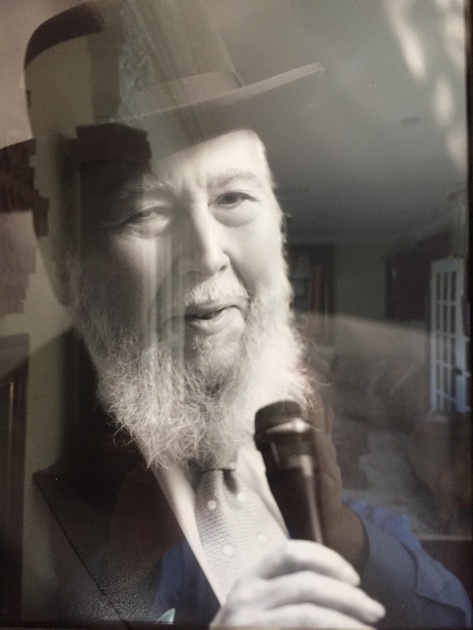
Eruvin 14
ūÉųĖū×ųĘū© ū©ųĘūæ ūżų╝ųĖūżų╝ųĖūÉ: ū®ūéų░ūżųĖū¬ūĢų╣ ū®ūéų░ūżųĘū¬ ūżų╝ųČū©ųĘūŚ ū®ūüūĢų╣ū®ūüųĖū¤ ūøų╝ų░ū¬ų┤ūÖūæ ūæų╝ųĄūÖūöų╝, ūōų╝ų┤ūøų░ū¬ų┤ūÖūæ: ū┤ūĢų░ūóūćūæų░ūÖūĢų╣ ūśųČūżųĘūŚ ūĢų╝ū®ūéų░ūżųĖū¬ūĢų╣ ūøų╝ų░ū×ųĘūóų▓ū®ūéųĄūö ūøų╝ūĢų╣ūĪ ūżų╝ųČū©ųĘūŚ ū®ūüūĢų╣ū®ūüųĖū¤ ūÉųĘū£ų░ūżų╝ųĘūÖų┤ūØ ūæų╝ųĘū¬ ūÖųĖūøų┤ūÖū£ū┤.
Rav Pappa said: With regard to its brim, it is written that the brim is as the petals of a lily, as stated in the verse: “And it was a handbreadth thick; and its brim was wrought as the brim of a cup, as the petals of a lily; it contained two thousand bat” (I Kings 7:26). The brim was very thin.
for Video Shiur click here to listen: Psychology of the DAF Eruvin 14
ū×ūÖ ūöū®ūÖū£ūĢūŚ ūŚū£ū¦ ūæ ū¦ū©ūŚ
ūøūÖ ūøū£ ūöūóūōūö ūøū£ūØ ū¦ūōū®ūÖūØ ūĢūæū¬ūĢūøūØ ūö'. ūöūĀūö ū×ūö ū®ūĀūøū¬ūæ ūæū¬ūĢū©ūö ūōūæū©ūÖūØ ūöūÉū£ūĢ ūóū£ ū®ū×ūĢ ūæūśūŚ ūÉū×ū© ū¢ūö ū×ūöūøū©ū¬ūĢ ūĢūóūĢū×ū¦ ū£ūæūĢ ū®ūæū¬ūĢūøūØ ūö', ūøūÖ ūÉūØ ūöūÖūö ū©ū¦ ū×ū®ūżūö ūĢū£ūŚūĢūź ū£ūÉ ūöūÖūö ūĀūøū¬ūæ ūæū¬ūĢū©ūö ū£ūóūĢū£ū×ūÖ ūóūō ūóū£ ū®ū×ūĢ, ūĢūÉūØ ūøū¤ ūöūÖūö ūæūĢ ū¦ūōūĢū®ūö ūÖū¦ū©ūö, ūĢū×ūö ūöūÖūö ūŚūĪū©ūĢūĀūĢ ūÉūÜ ūŚūĪū©ūĢūĀūĢ ūöūÖūö ūæū¢ūö ū®ūĀūōū×ūö ū£ūĢ ū®ūøūóūĪūĢ ūöūĢūÉ ū©ū¦ ū©ūĢūÆū¢ūÉ ūōū©ūæūĀū¤ ūøū×ūĢ ū®ūøū¬ūÖūæ (ūÖū©ū×ūÖūö ūø"ūÆ,ūø"ūś) ūöū£ūÉ ūøūö ūōūæū©ūÖ ūøūÉū® ūĀūÉūØ ūö' ūĢūÉūÖū¬ūÉ ūóū£ ū¢ūö ūæū¢ūö"ū¦ (ū¬ū”ūĢūö ū¦ūż"ūæ:) ūÉūĢū©ūÖūÖū¬ūÉ ūÉū®ūÉ ūÉūÖūöūĢ ūĢūÉūĢū©ūÖūÖū¬ūÉ ū¦ūÉ ū×ū©ū¬ūŚūÉ ū£ūÖūö, ū£ūøū¤ ūöūÖūö ūæūōūóū¬ ū¦ū©ūŚ ū®ūøū£ ūōūæū©ūÖūĢ ūöū×ūö ūÉū×ū¬ ūÆū×ūĢū©, ūÉūøū¤ ūæūÉū×ū¬ ūæūÖū¤ ū©ūĢūÆū¢ūÉ ūōū©ūæūĀū¤ ūĢūæūÖū¤ ūøūóūĪ ūöūÖūĢū©ūō ū£ū®ūÉūĢū£ ūöūĢūÉ ū©ū¦ ūŚūÖū£ūĢū¦ ū¦ūśū¤ ūōū¦ūö ū×ū¤ ūöūōū¦ūö, ū®ū£ūóūÖūĀūÖ ūæū®ū© ū£ūÉ ūĀū©ūÉūö ū×ūżūĢū©ū® ū®ūĢūØ ūŚūÖū£ūĢū¦, ū©ū¦ ūöū®ūÖ"ū¬ ūöūÖūĢūōūó ū¬ūóū£ūĢū×ūĢū¬ ū£ūæ ūŚū®ūæ ū¢ūÉū¬ ū£ūŚūśūÉ ūĢūóūĀū®ūĢ ū£ū¢ūøū©ūĢū¤ ū£ūæūĀūÖ ūÖū®ū©ūÉū£ ū®ūĪūæūÖūæūÖūĢ ūĀū®ūóū©ūö ū×ūÉūĢūō, ūøūÖ ūŚūÖū£ūĢū¦ ū¢ūö ūæū®ū©ū®ūĢ ūæū×ūóū®ūö ūæū©ūÉū®ūÖū¬ ūöūĢūÉ ūōū¦ ū×ūÉūĢūō ūøū×ūĢ ūżū©ūŚ ū®ūĢū®ū¤ ū®ūÉūÖū¬ūÉ ūæūÆū×' (ūóūÖū©ūĢūæūÖū¤ ūÖ"ūō.) ūĢūöūÉ ūÉūÖūøūÉ ū®ūżū¬ūĢ ūÉ"ū© ūżūżūÉ ū®ūżū¬ūĢ ū®ūżū¬ ūżū©ūŚ ū®ūĢū®ū¤ ūøū¬ūÖūæ ūæūÖūö ūĢūøū¤ ūŚūĪū©ūĢūĀūĢ ūöūÖūö ūōū¦ ū×ūÉūĢūō ūøū®ūĀūĢūśūö ū×ūóūś ū£ū®ū×ūÉū£ ūÖūĢū©ūō ū£ū®ūÉūĢū£ ūĢūøū®ūĀūĢūśūö ū¦ū”ū¬ ū£ūÖū×ūÖū¤ ūöūĢūÉ ūŚūÖūÖūØ, ūĢūæū¢ūö ūöūÖūö ūśūóūĢū¬ ū¦ū©ūŚ, ūĢūæūĀūÖ ū¦ū©ūŚ ūÆ"ūø ū×ū¬ūŚū£ūö ūĪūæū©ūĢ ūøū¤ ūÉūøū¤ ūÉūŚū© ūøū¤ ū©ūÉūĢ ū®ūśūóūĢ ūæū¢ūö ūöūöūæūōū£ ūōū¦ ūöūÖūĢū©ūō ū£ū®ūÉūĢū£ ū®ūöūöūæūōū£ ūöūĢūÉ ū©ū¦ ūøū×ūĢ ūżū©ūŚ ū®ūĢū®ū¤, ū£ūøū¤ ūÉū×ū©ūĢ ūÉūŚū© ūøū¤ ūöū×ū¢ū×ūĢū© (ūæū¬ūöū£ūÖūØ ū×"ūö) ū£ū×ūĀū”ūŚ ūóū£ ū®ū®ūĀūÖūØ ū£ūæūĀūÖ ū¦ū©ūŚ ū×ū®ūøūÖū£ ū®ūÖū© ūÖūōūÖūōūĢū¬ ū®ū¢ūö ūöū×ū¢ū×ūĢū© ūöūĢūÉ ūøūĢū£ūĢ ū×ū¬ū£ū×ūÖūō ūŚūøūØ. ūĢū¢ūö ū®ūÉūÖū¬ūÉ ūæū¢ūö"ū¦ (ūæū©ūÉū®ūÖū¬ ūÖ"ū¢.) ū®ūśūóūĢū¬ ū¦ū©ūŚ ūöūÖūö ūæū×ūóū®ūö ūæū©ūÉū®ūÖū¬, ūĢūÖūÉū×ū© ūÉū£ūöūÖūØ ūÖūöūÖ ū©ū¦ūÖūó, ūöūøūÉ ūæūżū©ūś ū©ū¢ūÉ ū£ūÉūżū©ū®ūÉ ū×ūÖūÖū¤ ūóū£ūÉūÖū¤ ū£ū¬ū¬ūÉūÖ ūæū©ū¢ūÉ ūōū®ū×ūÉū£ūÉ ūöūøūÉ ū×ūŚū£ūĢū¦ū¬ ūæū©ū¢ūÉ ūōū®ū×ūÉū£ūÉ ūĢūøūĢ' ūŚūøū×ū¬ūÉ ūōū×ū®ūö ūæūöūÉ ūÉūĪū¬ūøū£ ūĢūæūóūĢūæūōūÉ ūōūæū©ūÉū®ūÖū¬ ūÉū®ūÆūÉ ūæūóūĢūæūōūÉ ūōūæū©ūÉū®ūÖū¬ ūöūĢūö ū×ūŚū£ūĢū¦ū¬ ū®ū×ūÉū£ūÉ ūæūÖū×ūÖūĀūÉ ūĢūøūĢ' ūÖūĢūØ ū¬ū£ūÖū¬ūÉūÖ ūóūÉū£ ūæūÖūĀūÖūÖūöūĢ ūĢūÉūżū©ūÖū® ū×ūŚū£ūĢū¦ū¬ ūĢūÉūĪūøūÖūØ ū£ū¬ū©ūÖū¤ ūĪūśū©ūÖū¤ ūĢūøūĢ' ūøūÆūĢūĢūĀūÉ ūōūÉ ū×ūŚū£ūĢū¦ū¬ ū¦ū©ūŚ ūæūÉūöū©ū¤ ū®ū×ūÉū£ūÉ ūæūÖū×ūÖūĀūÉ ūÉūĪū¬ūøū£ ū×ū®ūö ūæūóūĢūæūōūÉ ūōūæū©ūÉū®ūÖū¬ ūÉū×ū© ū£ūÖ ūÉū¬ūŚū¢ūÖ ū£ūÉūżū©ū®ūÉ ū×ūŚū£ūĢū¦ū¬ ūæūÖū¤ ūÖū×ūÖūĀūÉ ū£ū®ū×ūÉū£ūÉ ūĢūøūĢ'.
The Ishbitzer ties in the concept of the petal of a lilly as the fine line a Torah sage walks when he is in touch with his harshness and anger. If he is on the right side of his outrage, he is on the side of truth, but if he is off by even the smallest degree, he can end up like Korach. He notes that the Torah would not have recorded Korach’s complaints, especially maintaining the holiness of the entire Israel unless his outrage had an aspect of validity. We can easily imagine Korach’s fear that too much power rested in the hands of Moshe and Aharon. I must wonder, even as we assume that Moshe and Aharon did not abuse the power, who said it was good for the Jewish people to be so dependent? Could this not lead to disasters of weakness and panic such as the spies-Meraglim incident? Perhaps this was part of what Korach was concerned about, and there was some justification according to the Ishbitzer, but somehow Korah went to far, and only by hair’s breadth.
Being right is easy for smart people who are often right. Not getting angry, arrogant or being too aggressive is much harder. What is the difference between the arguments of Beis Shammai and Bais Hillel versus the arguments of Korach and Moshe? As it turns out, according to the Ishbitzer, not much.
for Video Shiur click here to listen: Psychology of the DAF Eruvin 14
Translations Courtesy of Sefaria
Photo Abba Mari Rav Chaim Feuerman, Ed.D. ZT"L Leiyluy Nishmaso

 Previous
Previous
